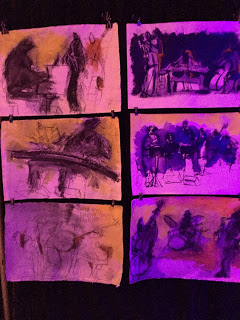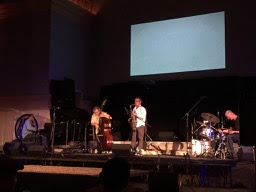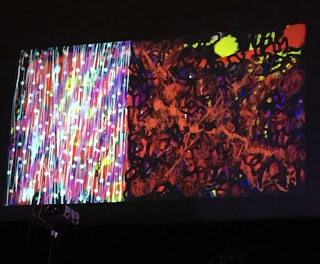 |
| Projected image by Bill Mazza |
By Paul Acquaro
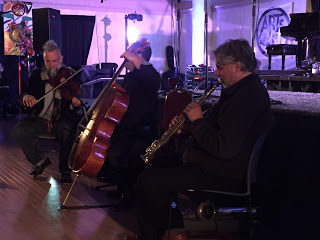 |
| Matt Maneri, Daniel Levin, and Tony Malaby |
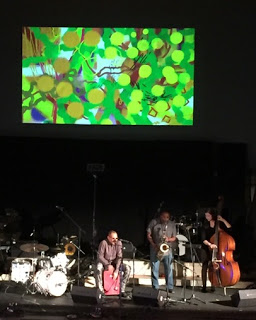 |
| Kahil El’Zabar, David Murray, and Carmen Rothwell |
Murray is a powerful player, his tone is burly, and is quite inspiring. However, the flip side is that he seemed to loose himself in the music and his set went overtime, pushing later the final set with saxophonist Oliver Lake and William Parker leading a big band. Due to the train schedule, I couldn’t stick around for this culminating moment of the festival. I waited hopefully as they set up, but as dancer Miriam Parker descended the stairs from the balcony, bathed in a golden spotlight, and heading towards the large ensemble assembled on stage, I made my way out to into the NYC night.
Vision Festival #22, May 28th – June 3, 2017, reviews:
- Day 1: Calling All Visions
- Day 2: The Resistance Begins
- Day 3: Pause and Reflection
- Day 4: Don’t Let Them Take Your Joy Away
- Day 5: Letting the Music Speak
- Day 6: Seeking Optimism

